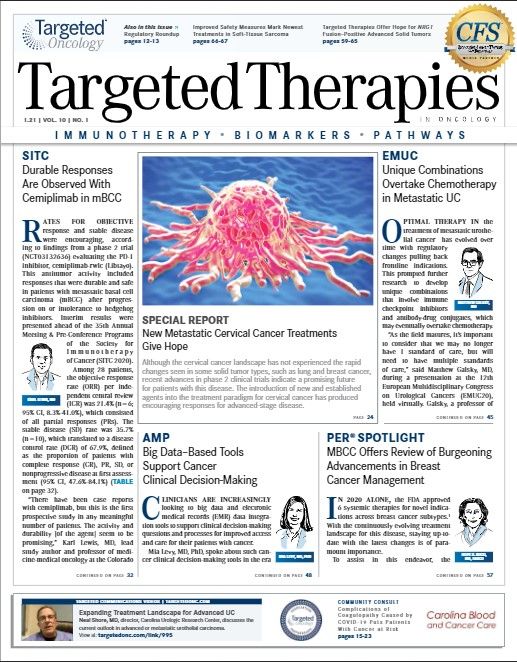Unique Immunotherapy Combinations Come to the Forefront at SITC Meeting
In this trial, the previous observation of liver toxicity using CD137 agonism was not observed, suggesting a safe neoadjuvant dosing. Indeed, 30% of patients demonstrated pathologic responses. Further research may combine a way of overcoming immune checkpoint pathways with stimulatory agonists.
Robert L. Ferris, MD, PhD

Looking back on the long and difficult year that was 2020, 1 of the positive events was the Society for Immunotherapy of Cancer (SITC) Annual Meeting held virtually in November.
The meeting was led by outgoing SITC president Mario Sznol, MD, professor of medical oncology and coleader of the cancer immunology program at Yale University in New Haven, Connecticut. Given the success of cancer immunotherapy, over the years the SITC meeting has become more clinical and translational, as well as biomarker-oriented, involving clinical trials across a variety of cancers. The meeting included public presentation of early phase data manifesting productive collaborations between industry and academic investigators.
One example comes from an attempt to improve on anti–PD-1 nivolumab (Opdivo) therapy by targeting the tumor microenvironment with eganelisib (IPI-549), which was presented by Ezra Cohen, MD, professor of medicine and associate director of translational service at the University of California, San Diego. Cohen presented updated clinical data from an expansion cohort that included non–small cell lung cancer, melanoma, and squamous cell carcinoma of the head and neck (SCCHN), from the MARIO 1 study (NCT02637531). In the SCCHN expansion cohort, a selective PI3 kinase-γ inhibitor was used to enhance the modest (15% objective response rate) activity of anti–PD-1 nivolumab or pembrolizumab (Keytruda) in SCCHN.
In the expansion cohort (n=21), an overall response rate of 10% was observed, particularly in patients who would not be expected to respond to anti–PD-1 monotherapy, having progressed on their immediate prior therapy with a checkpoint inhibitor. In these patients, a disease control rate of 45% was encouraging, even in a small cohort such as this. More importantly, it proves the concept that targeting macrophages with a PI3 kinase-γ inhibitor may be beneficial. Other therapies targeting PI3 kinase-γ,δ dual inhibitors are ongoing and complement strategies to target the tumor microenvironment and STAT-3 dependent genes.
Other data presented combined inhibitory strategies with vaccination in pancreatic cancer developed in the laboratory of Elizabeth M. Jaffee, MD, professor of oncology and deputy director of The Sidney Kimmel Comprehensive Cancer Center at Johns Hopkins Medicine in Baltimore, Maryland. In this approach, the GVAX allogeneic tumor cell vaccine strategy was combined with nivolumab and urelumab, which triggers the CD137 pathway.
In this trial, the previous observation of liver toxicity using CD137 agonism was not observed, suggesting a safe neoadjuvant dosing. Indeed, 30% of patients demonstrated pathologic responses. Further research may combine a way of overcoming immune checkpoint pathways with stimulatory agonists.
In all, 2020 came to an end with continued progress, and hopes for future meetings in person to enhance direct scientific interchange.

Survivorship Care Promotes Evidence-Based Approaches for Quality of Life and Beyond
March 21st 2025Frank J. Penedo, PhD, explains the challenges of survivorship care for patients with cancer and how he implements programs to support patients’ emotional, physical, and practical needs.
Read More